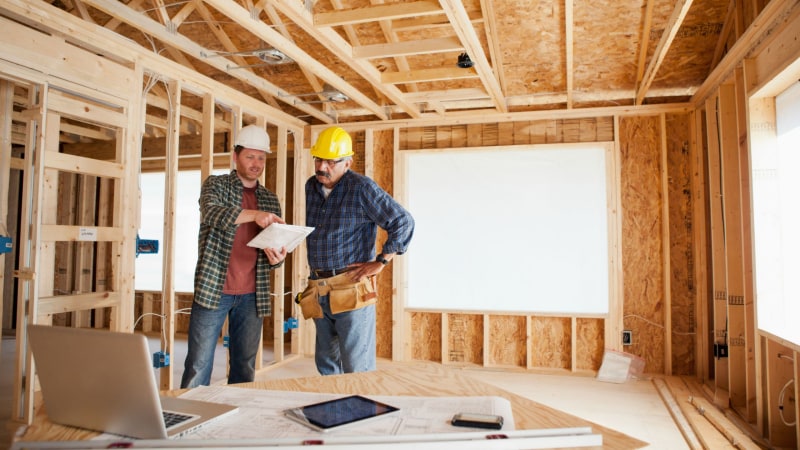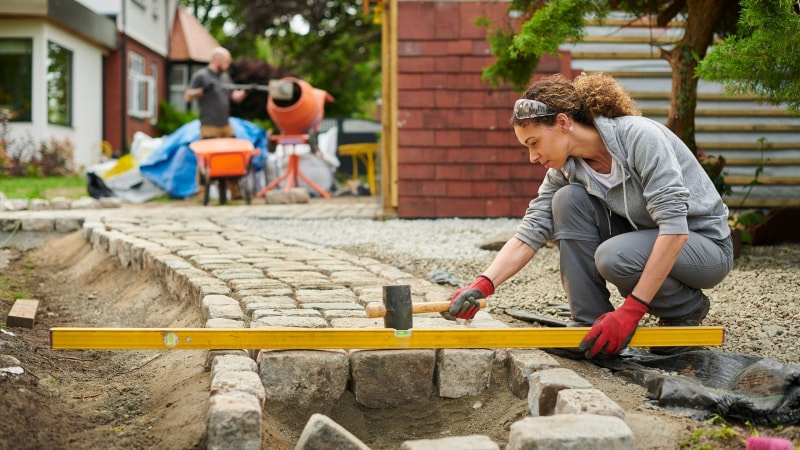How much is a new HVAC system?

The heating, ventilation and cooling (HVAC) system is sometimes considered the heartbeat of your home. Say it’s the middle of the summer and your air conditioning begins to make a suspicious humming noise — oh no! Before you panic and start wondering if you need to renovate or move, take a second. Your HVAC may just require a simple fix, possibly from the strain of working extra hard during the summer months.
In the event that your home’s HVAC system breaks down, or the property you buy didn't come equipped with one, you may be wondering, how much is a new HVAC system anyway?
What is HVAC?
HVAC systems control the temperature in your home. Air conditioners, furnaces, heat pumps and indoor air quality appliances are all part of the HVAC system.
Your local climate will likely determine what your heating, ventilation and cooling needs look like. If you live in a warm climate, for instance, you might use your air conditioning on a regular basis. If you live in a colder climate, prioritizing a reliable furnace might be the difference between your home feeling like a cozy cabin or an iced-out igloo.
New HVAC system cost
As you see, the HVAC system plays an important role in your home. It keeps you warm in the winter, cold and cool in the summer heat. You've probably gone a night or two without an HVAC system, and it likely wasn't the best sleep of your life. Suffice it to say, however, that comfort doesn't come without a price, and a new HVAC system tends to be costly.
Factors that affect cost
There are a few factors that affect the cost of a HVAC system:
- The type of system: Cost of the replacement can vary depending on the brand and the type of system you’re interested in.
- Equipment size and capacity: The equipment size and capacity will likely affect how much the replacement costs. Replacing an entire central air-conditioning system will likely cost a good bit more than replacing a window AC unit, for instance.
- Seasonal energy efficiency ratio (SEER): SEER represents how much energy and money the unit requires to operate effectively over a single year. A SEER rating is the ratio of a cooling output of a system over an average season divided by the total energy used.
- Equipment add-ons: If you’re considering replacing part of your HVAC system, there may be opportunities to add certain equipment features to your new appliances. For example, air purifiers or humidification systems.
- Ductwork and vents: Depending on the type of installation, you may need ductwork renovation or replacements. If you require one of these two more invasive system replacements, the cost will likely increase.
- Control systems and zoning: Modern HVAC systems have advanced ways of controlling the temperature around your home. New systems may come with the option for Bluetooth thermostats that allow you to control the temperature in multiple rooms remotely. If you opt for a Bluetooth control or multiple-zone air-conditioning system, it’s likely to be more costly.
Cost of HVAC per system
The cost of an HVAC per system will mostly depend on the above six factors, but recent averages according to Forbes Home can be seen below:
- Furnace and AC split system average cost: $9,600
- Boiler and AC system split average cost: $10,800
- Furnace and AC mini-split system average cost: $7,800
- Heat pump and air handler system average cost: $6,000
- Dual-fuel heat pump and furnace system average cost: $8,500
- Mini-split heat pump average cost: $4,800
- Geothermal heat pump average cost: $24,000
Do note that the cost of HVAC per system averages change and evolve over time. The numbers you see here may not represent the true or exact cost of what you pay.
HVAC installation cost
Typically, you’ll need to hire a professional for HVAC installation, who will charge you for parts as well as time. The service fee will depend on who you hire and how long the installation takes. Therefore, the total installation cost in most instances will be the cost of the system plus the cost of the service.
How to save money on a new HVAC
There’s no denying that a new HVAC system can be costly. However, there may be ways to save yourself some money by:
- Checking for potential rebates: Rebates are partial refunds for someone who has spent money on some consumer goods and are often used as an incentive. For example, some local governments or HVAC companies offer rebates for installing energy-efficient HVAC equipment.
- Looking for off-season discounts: Some HVAC companies may offer off-season discounts to people buying systems and appliances during their quiet season. For example, you may find an off-season discount at an AC supplier during the winter.
- Comparing quotes: Before committing to any new HVAC appliance or installer, be sure to compare quotes. You may find a reduced price elsewhere and potentially be able to use that as leverage for a bigger discount at another supplier.
In summary
Heating, ventilation and cooling systems are an important part of most homes. If your HVAC has problems, it may be costly to replace. The cost of the replacement will depend on the issue, what type of system you’re looking to replace and how much the installation costs. It helps to check for local rebates, off-season discounts and compare quotes to help save some money if you need to buy or replace part of your HVAC system.
FAQs
1. Does home insurance cover HVAC replacement?
Your HVAC replacement may be covered by homeowner’s insurance in the event of a peril or disaster that causes the need for a home repair. Consult your policy agreement or consider reaching out to an insurance professional to see if this applies to you.
2. How long do HVAC units last?
The life of your HVAC unit will depend on the type of system and other, variable contributing factors. Some HVAC units may last a decade or two while others may last a few years.
3. How long does it take to replace HVAC system?
It depends on what type of HVAC system replacement you need. Due to the general complexity of HVAC systems, however, the replacement may take a few days to a week to complete.
4. When should I replace my HVAC?
If your HVAC is still working but you’re suspicious about its lifespan, pay close attention to your utility bills, your home’s temperature regulation and how much money you may be spending on repairs. If you’re noticing one or all of the above trending in the wrong direction, it may be time to replace your HVAC.
5. Does a new HVAC system increase home value?
Installing a new HVAC system may increase your home value. It will depend on the age and condition of your current system and how much an HVAC is valued in your general environment.



